EDITORIAL: You can’t out police crime
Crime rates are rising in the city and nationwide despite movements to increase and reform policing. The increase in crime and failure of the criminal justice system has led us to one conclusion –we need to rethink how we view crime, policing, and community. Public safety goes beyond policing and punishment, which targets people of color and are damaging to already suffering communities.
We can’t keep throwing money at policing programs without trying to solve the root of the problem , systemic inequality that forces people into cycles of crime: systemic inequality. We shouldn’t send militarised officers into low-income neighborhoods that have been historically targeted by the police and expect them to be accepted into these communities with open arms. Let’s stop electing politicians into positions of power that intend to continue this cycle of abuse. It’s time that we take a look at why crime happens and why only certain people are punished for it.
While there’s no concrete list of why crime happens, it’s simple to recognize some of the reasons. People have needs. And when their needs aren’t met, they’re forced to work outside of the system to meet them. In New Orleans, the neighborhoods that experience the highest levels of violent crimes are historically disenfranchised communities of color. They are people who have less access to jobs, transportation, and education, preventing them from climbing the social ladder. Redlining, zoning laws, and remnants of segregation stifle their voices when they attempt to gain political power. Unlike the wealthier, white neighborhoods, these communities lack social safety nets and government resources, continuing the cycle of poverty.
The 7th Ward, a neighborhood that had one of the highest rates of violent crimes in 2019, had an average household income of $33,205, less than half of the city’s $67,224 average. Residents of this majority Black neighborhood work backbreaking minimum wage jobs and can barely afford to make ends meet. Wealth disparity and systemic racism allows some areas of the city to be wealthy boomtowns, while others are left isolated, resourceless, and at the whims of law enforcement.
People of color, particularly Black Americans, face disproportionate violence and persecution by law enforcement. Their communities are overpoliced, underfunded, and neglected by the politicians that were elected to serve them. According to the NAACP, Black people are five times as likely to be stopped without cause than their White counterparts.
People of color experience extreme fear of police brutality, and it has severe mental health consequences. Officers take an oath to serve and protect, but instead, they contribute to and enforce a system that penalizes marginalized communities. Their presence and over-policing causes stress and creates a harmful power dynamic. Law enforcement’s history of racial profiling and lack of trust towards communities of color has created an irreparable divide, and diversity trainings and empty promises won’t fix it.
Sending undertrained and overarmed cops into “problem areas” won’t solve crime, and it won’t repair the generations-long damage that was done by state-sanctioned violence. You can’t outpolice violence. It’s relational and dependent on specific circumstances, and authority intervention can’t fix that.
If additional supervision of high crime areas isn’t the solution, then what is? Instead of treating crime as a self-contained issue, we need to recognize it as a symptom of a much larger problem: systemic oppression and lack of resources. The criminalization of poverty and Blackness causes a divide between marginalized communities and the government systems that are supposedly designed to benefit them. Alternative forms of mediation and crime prevention can help fill the gaps that law enforcement can’t.
Rather than sending officers into areas, send social workers and counselors in to mediate nonviolent crimes and disputes. New York City has already begun the transition and the results aren’t shocking. They’re reporting lower arrest and hospitalization rates, and many callers are receiving access to mental health facilities.
Instead of contributing to the calling the police on unhoused people and contributing to their violence, donate to local homeless shelters. Even better, have trust and engage in community action by giving money directly to unhoused people. Giving money directly to people, rather than organizations, shows a higher level of respect and recognition of their humanity. Unhoused people are still people with financial autonomy, regardless of their socioeconomic status.
If you do encounter someone committing a crime or exhibiting concerning behavior, the police aren’t always the people to call. Assess the situation and determine whether a mental health hotline, a family justice center, or a queer support center might be a better alternative. If you or someone you know is struggling with mental health or suicidal ideation, the Jefferson Parish Human Services Authority provides mobile crisis intervention at all hours for both children and adults. There are also hotlines specifically for suicidal crisis, such as ViaLink Crisis and Suicide Intervention.
If no one is in immediate threat or danger, there are hotlines and resources available for victims of sexual and domestic abuse. The Louisiana Commission Against Domestic Violence is a federally sponsored system of shelters that works to support victims and end the cycle of abuse. Other programs, such as the Louisiana Foundation Against Sexual Assault, offer 24/7 Spanish and English hotlines that help victims through trauma mangment and connect them to resources in their communities. Those who are financially struggling can contact the Sexual Trauma Awareness Response, which provides no-cost and confidential legal counseling, and advocacy services.
For those who can’t advocate for themselves, such as youth victims of assault, there are low-cost programs and hotlines available. BreakOUT! Youth works specifically with LGBTQ+ youth to help end the criminalization of identities and persecution within their communities. They provide opportunities for leadership development and political organizing for queer youth between the ages of 13-25. Also catering to LGBTQ+ youth, the Covenant House New Orleans provides both immediate and long-term care, as well as a 24/7 crisis center and emergency housing.
Regardless of these resources, there will be some situations where emergency law enforcement is necessary, but there’s no need to involve them in nonviolent crises and disputes. Instead of supporting a system that harms marginalized groups, engage in mutual aid and direct action within your community. Investing in social programs and supporting hands-on resources will create long-lasting bonds and help break the cycles that result in crime. Donate to community fridges. Join renters’ rights organizations. Reach out to people in your community who are in need of help.
You can’t out-police poverty or mental illness. Crime is a symptom of injustice that must be solved at the root. It’s time to engage with our communities by working outside of traditional methods of prevention and punishment; it’s time to treat our communities with respect.
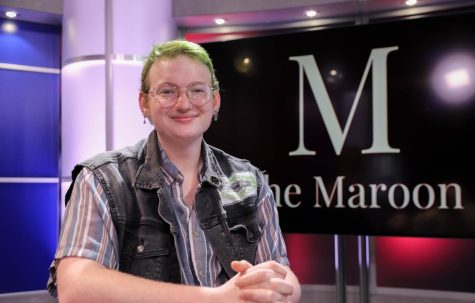
Oliver Bennett is a mass communications journalism and sociology major from Dallas, Texas and Natchitoches, Louisiana. This semester, he’s excited to...


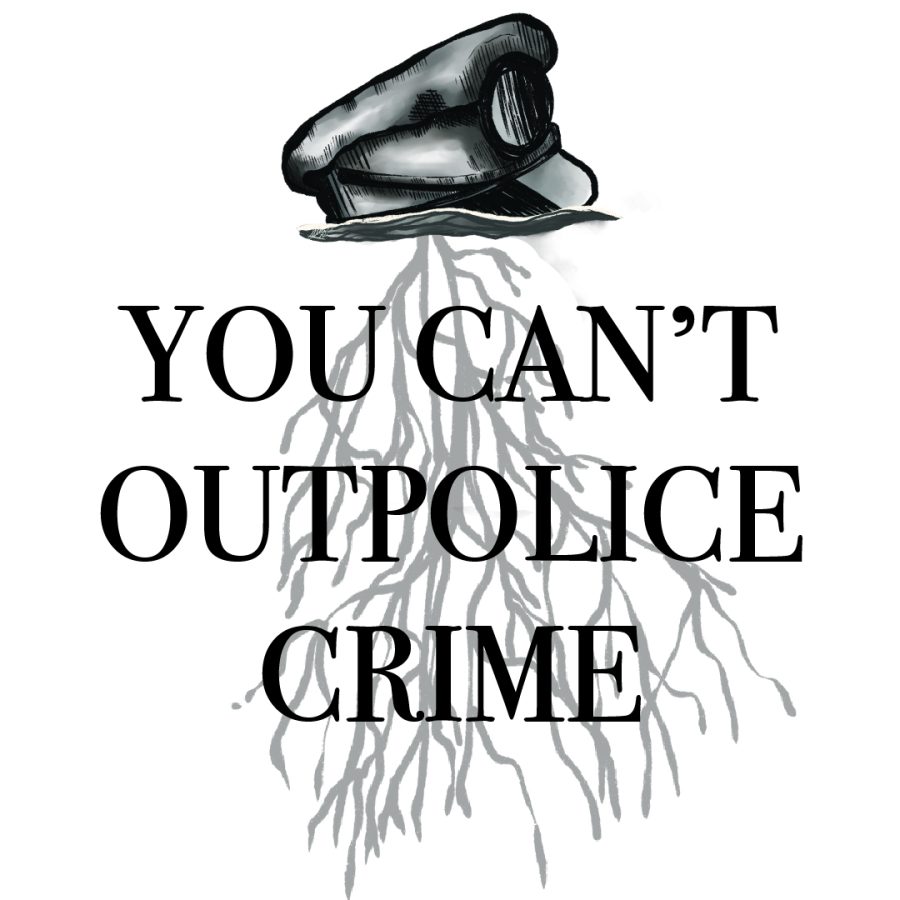

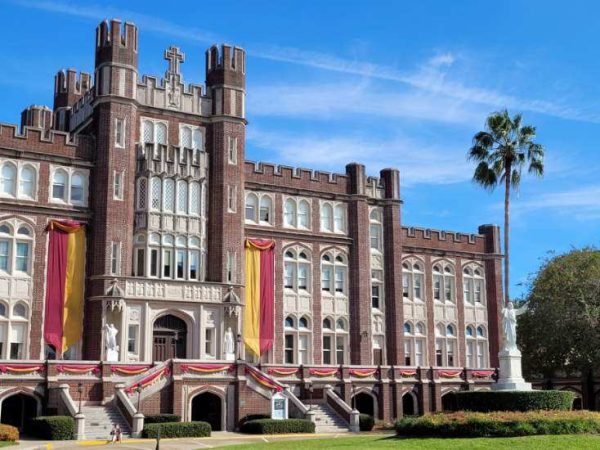
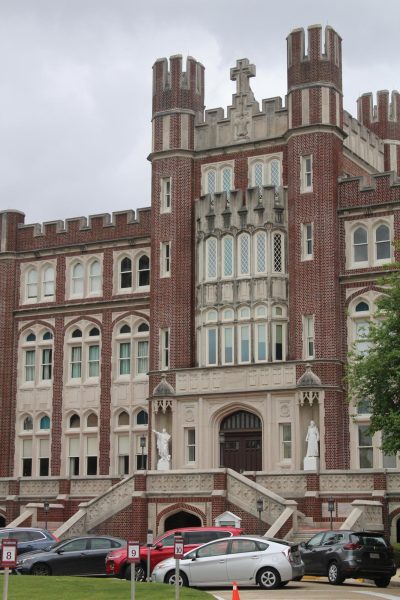
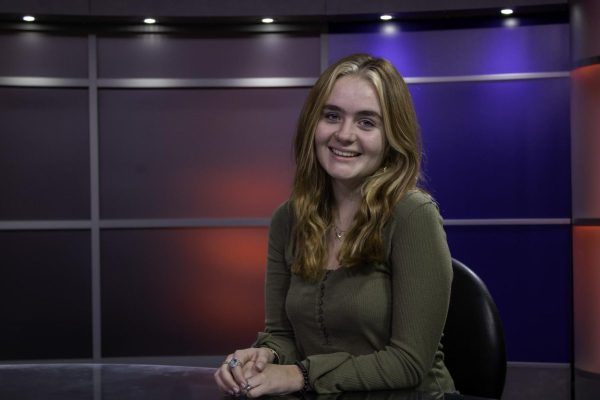
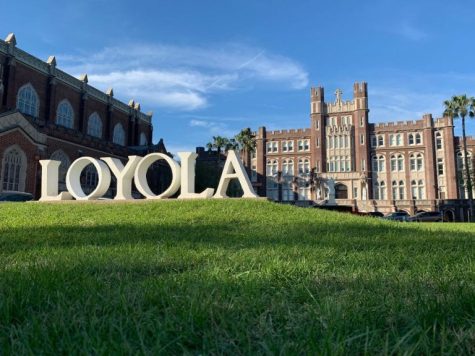
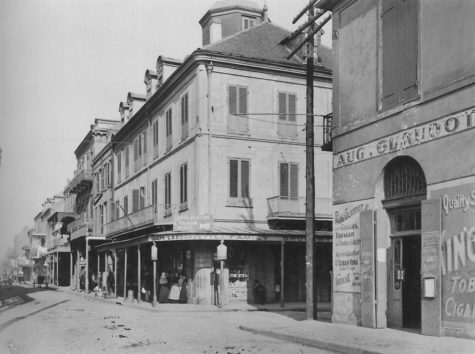
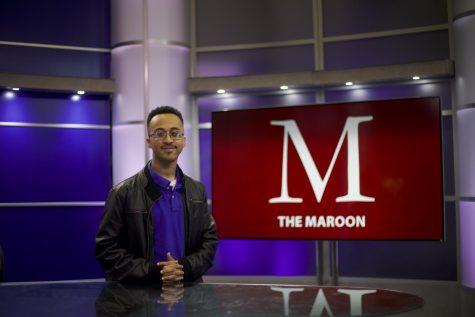
Michael Barnett • Oct 1, 2021 at 12:38 pm
Crime is a symptom of injustice? So when Bernie Madoff ran a $65 Billion ponzi scheme, what injustice was he suffering from, antisemitism? Grow up and learn to think for yourself.